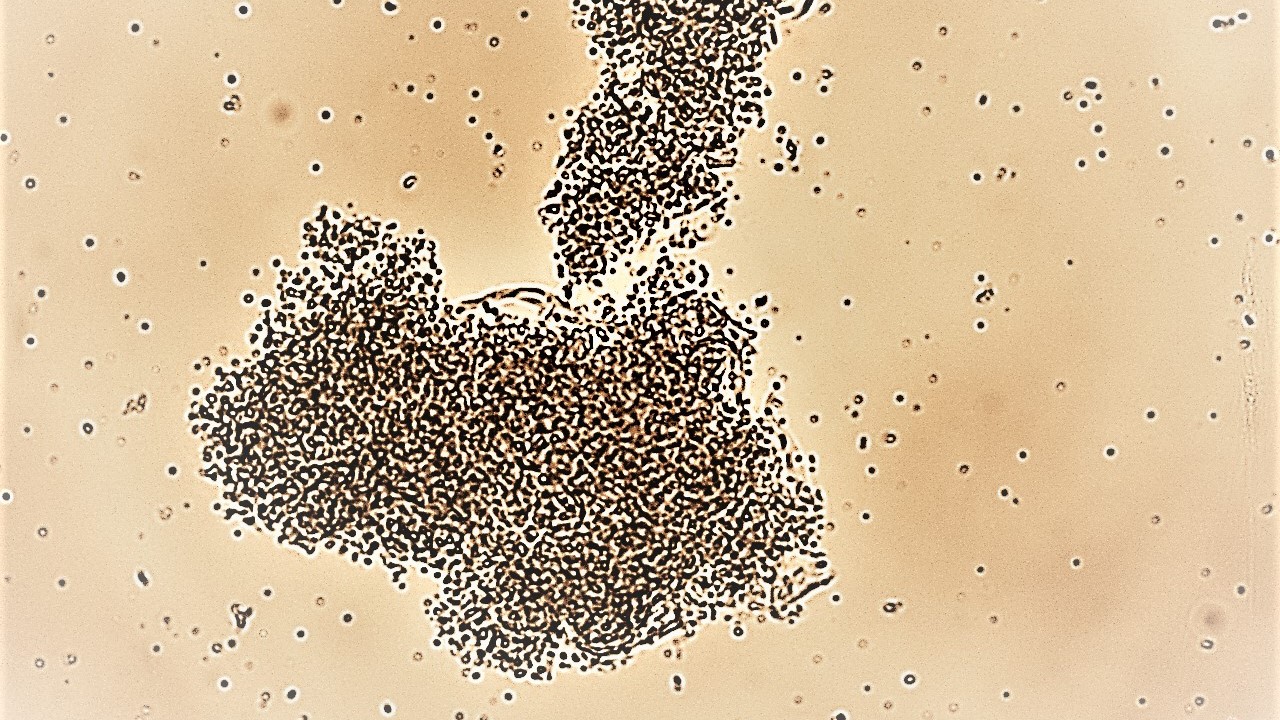Non-microbiological turbidity of beer: Part 2 – a case study
DOI:
https://doi.org/10.18832/kp2021.67.523Keywords:
beer, colloidal turbidity, protein turbidity, protein-polyphenol turbidity, haze, microscopic analysis, image analysisAbstract
Non-microbial beer turbidity of lager beers often indicates a technological problem. Therefore, the occurrence of permanent haze in filtered and stabilized beer should not be underestimated. In this study, practical examples from industrial breweries, where several types of non-microbiological haze of colloidal were identified, are presented. These examples of haze were caused by slightly different factors, and as a result, they had a different microscopic image. It is often accompanied by mechanical impurities and sometimes by microorganisms that function as nucleation centers. Moreover, a very interesting example of almost brilliant permanent beer haze caused by the destruction of yeast cells with the following pouring intracellular contents of cells into beer is introduced. This phenomenon, which could be called “precedent”, was caused by a bad physiological condition of yeasts cells and inappropriately chosen yeast separation technology.
References
Bradford, M. M. (1976). A rapid and sensitive method for the quantitation of microgram quantities of protein utilizing the principle of protein-dye binding. Analytical Biochemistry, 72, 248–254. https://doi.org/10.1006/abio.1976.9999
EBC 4.3.3.1. (2011). Analytica EBC. Lactic Acid Bacteria. Fachverlag Hans Carl, Nürnberg. Retrieved from https://brewup.eu/ebc-analytica
EBC 4.4.2. (2011). Analytica EBC. Escherichia coli and Coliform Bacteria. Fachverlag Hans Carl, Nürnberg. Retrieved from https://brewup.eu/ebc-analytica
EBC 9.11. (2002). Analytica EBC. Total Polyphenols in Beer by Spectrophotometry. Fachverlag Hans Carl, Nürnberg. Retrieved from https://brewup.eu/ebc-analytica
EBC 9.19. (2002). Analytica EBC. Calcium in Beer by Atomic Absorption Spectrophotometry. Fachverlag Hans Carl, Nürnberg. Retrieved from https://brewup.eu/ebc-analytica
EBC 9.29. (2015). Analytica EBC. Haze in Beer: Calibration of Haze Meters. Fachverlag Hans Carl, Nürnberg. Retrieved from https://brewup.eu/ebc-analytica
Jurková, M., Čejka, P., Štěrba, K., Olšovská, J. (2014). Determination of total carbohydrate content in beer using its pre-column enzymatic cleavage and HPLC-RI. Food Analytical Methods, 7(8), 1677–1686. https://doi.org/10.1007/s12161-014-9805-y
MEBAK 2.3. (2011). Photometric Iodine Test. In J. Fritz (Ed.), MEBAK – Wort, Beer, Beer-based Beverages. Germany: Freising-Weihenstephan.
MEBAK 2.22.2. (2013). Oxalate by Ion Chromatography with Conductivity detection. In J. Fritz (Ed.), MEBAK – Wort, Beer, Beer-based Beverages. Germany: Freising-Weihenstephan.
Olšovská, J., Štěrba, K., Slabý, M., Vrzal, T. (2021). Novel method for determination of heterocyclic compounds and their impact in brewing technology. Kvasny Prumysl, 67(2), 417–427. https://doi.org/10.18832/kp2021.67.417
Steiner, E., Becker, T., Gastl, M. (2010). Turbidity and haze formation in beer - insights and overview. Journal of the Institute of Brewing, 116(4), 360–368. https://doi.org/10.1002/j.2050-0416.2010.tb00787.x

Downloads
Published
How to Cite
Issue
Section
License
Copyright (c) 2021 Jana Olšovská, Petra Kubizniaková, Martin Slabý, Lucie Kyselová

This work is licensed under a Creative Commons Attribution 4.0 International License.







